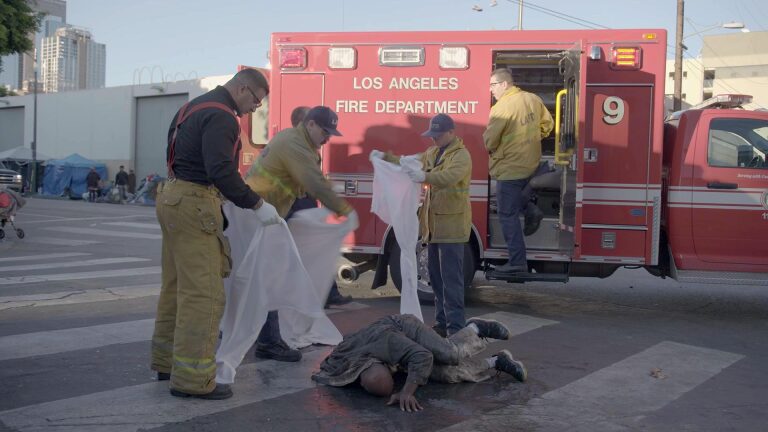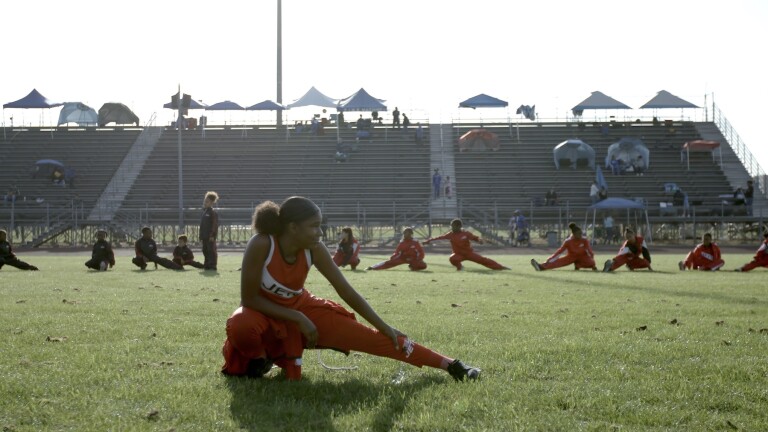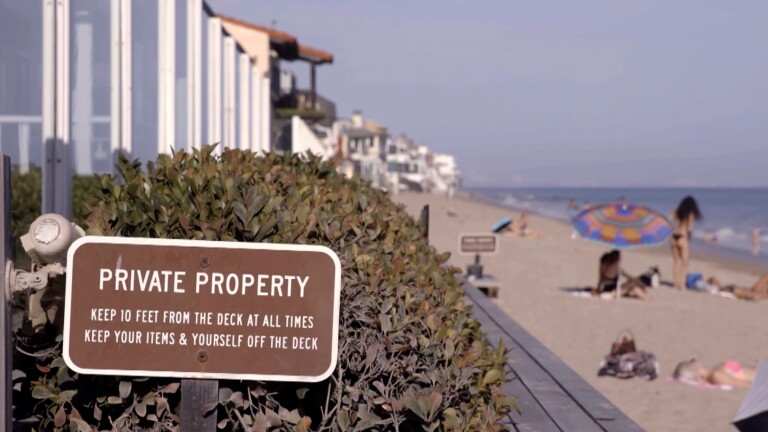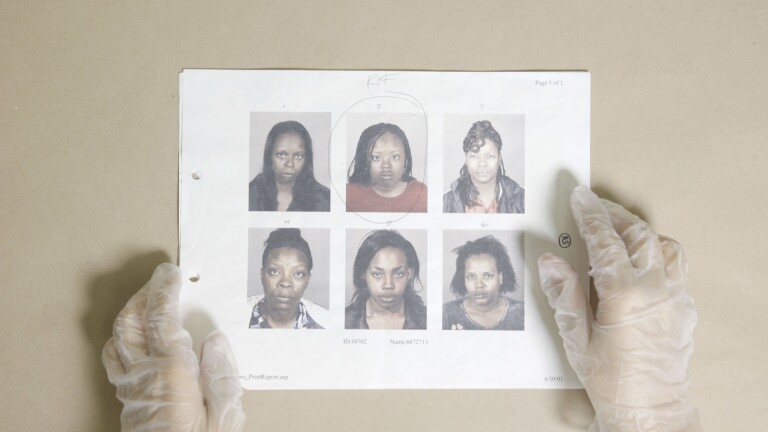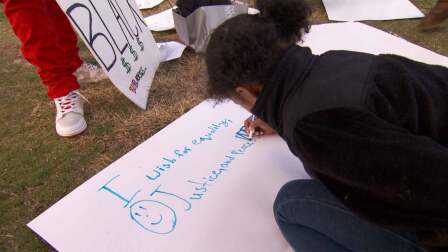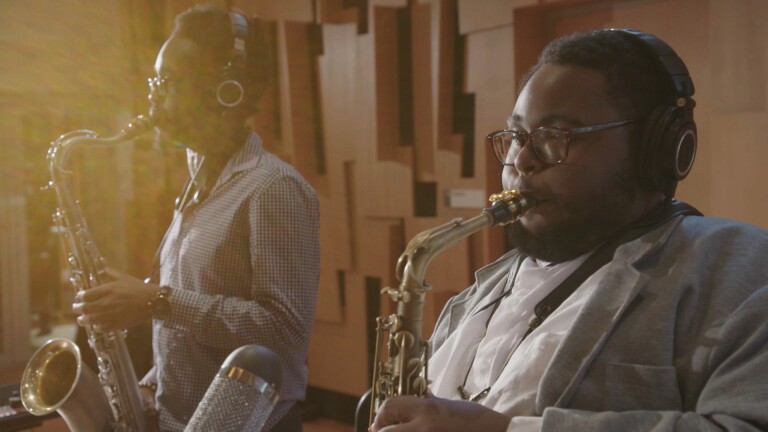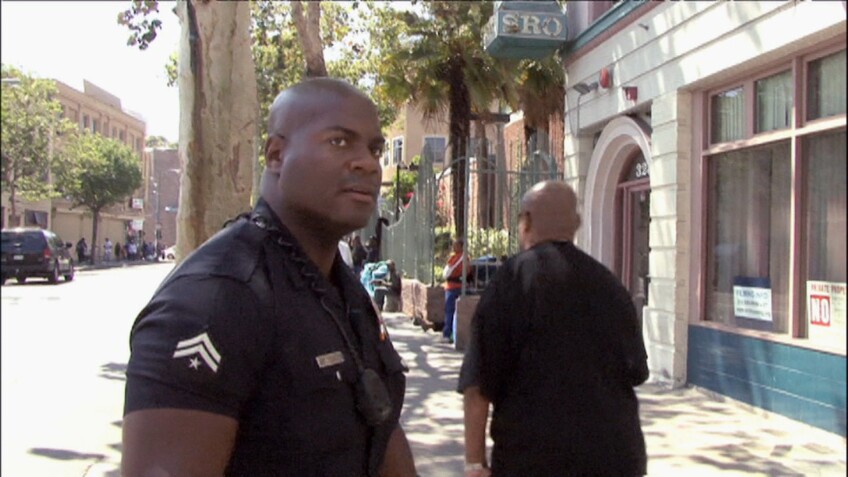
The Skid Row Cop
Officer Deon Joseph is tasked with protecting and serving the homeless population on L.A.'s Skid Row, one of the most dangerous areas of the city.
At first officer Joseph didn't want the assignment, but now after 17 years on the job, he considers it a "calling." He responds to crisis situations, unlawful activity, drinking or using drugs in public, while also trying to help those who are looking for a way off Skid Row.
Joseph believes in open communication. He’ll often let the residents go off on a warning, taking extreme action only when needed.
"My job is to make sure you're safe where you're at, and if where you're at is Skid Row, I'm not here to judge you; I'm here to police and serve, that's it."
Today, more than 17,000 people live in L.A.'s Skid Row neighborhood. In recent months, the city has declared a state of emergency on homelessness. Various local organizations like The L.A. Mission and United Way have also called for an end to chronic and veteran homelessness. Despite the best intentions and various policies, the number of homeless in L.A. and L.A. County continues to grow.
Featuring Interviews With:
- Officer Deon Joseph
Transcript
Deon Joseph: My name is Deon Joseph and I’m the senior lead officer, but I’m not into titles.
Val Zavala: Officer Deon Joseph didn’t want to be assigned to L.A.’s Skid Row. He said coming here was like stepping into a disaster movie: drugs, prostitution, alcohol, mental illness, and brutality -- all played out in a few city’s blocks. 17 years later, he’s still here.
Deon Joseph: You were in the station a few seconds ago, everything alright?
Val Zavala: And has no interest in being reassigned.
Deon Joseph: Hey boss, is that a beer in there? I’ll take your word for it. Is it going to be open? I hope not.
Val Zavala: He realized after a few months that as an African American police officer, people trusted him more and asked for help. He’s helped about 150 people get permanent housing.
Deon Joseph: Sir, how are you? How is that place working out for you? No problem at all.
Val Zavala: His parents worked with the homeless. His father would hire ex-cons who needed a second chance.
Deon Joseph: You’re getting a warning this time, but next time you’re going to have a problem. You OK? You can’t lay on the sidewalk, OK? It’s against the law. But I’m not arresting you, I’m just warning you. Tired? You can go inside the Rescue Mission in the back. I’ll give you my business card they’ll let you in. There’s a whole bunch of options other than laying here on the sidewalk.
Val Zavala: Officer Joseph is especially concerned about the women on Skid Row. Most of them have been victim of rape or domestic violence.
Resident: What type of training?
Deon Joseph: Self-defense and teaching you guys about laws and protecting yourself and your children.
Val Zavala: So he started a program that encourages them to report their assailants.
Deon Joseph: Learning experience. What did you come away with?
Resident: Knowing how to financially budget my money back so I won’t be in a place like this.
Val Zavala: Although he’s a familiar face, this is still a very dangerous place. He’s never had to shoot anyone, though he’s come close: Four times.
Resident: That guy in the tan pants, he keeps trying to break in. He was digging into my door. He’s crazy as hell. Every day I have to deal this guy.
Val Zavala: Over the decades, city and county homeless policy is swung from arrest and clear them out to offering them outreach and services. But the homeless population and L.A. city and county keeps growing.
Deon Joseph: These people, they are salvageable. They are worth saving. Their lives are important. I really believe that, or I wouldn’t be here 11 years of my career. I love these people. They are awesome people.

